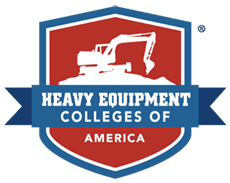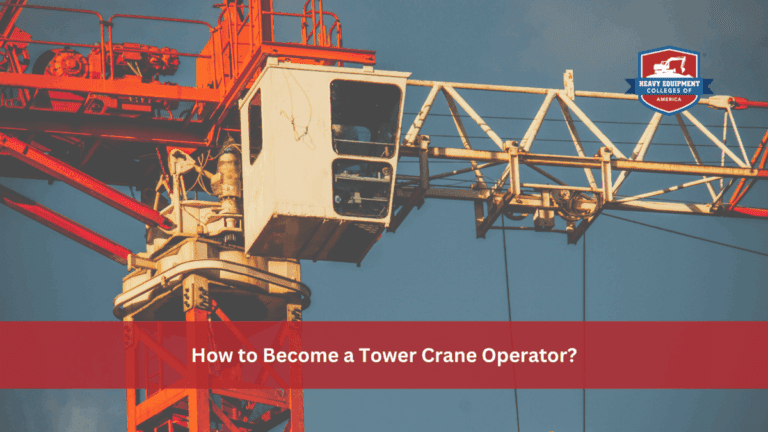- Latest figures on crane operator salaries show a national annual wage of $64,000 while the top 10% in New Jersey earn $117,000/year; the most lucrative states to work in are evenly distributed across the country and employment opportunities are increasing rapidly.
- 79 percent of the students enrolled in operating courses at Heavy Equipment Colleges of America are of the millennial generation or younger, bringing a host of transferrable skills with them as they build a new career in crane operation.
- In 2021 HEC took delivery of two new Manitowoc MLC100-1 crawler cranes to join its fleet of approximately 15 Manitowoc and Grove cranes, all used in hands-on training at the school.
Table of Contents
Whether it’s because of high wages, increased opportunities or the ability to handle loads easier than ever before, there may never have been a better time to be — or become — a crane operator. Back in 2014, the Bureau of Labor Statistics predicted an 8% rise in vacancies for this occupation over the following 10 years — well above the average increase for other highly skilled jobs. As of May 2020, it estimated that over 44,000 positions nationwide were either filled or available, paying a mean annual wage of just over $64,000, or $30.77 per hour.
And with the best states to be an operator being evenly distributed across the U.S., you’re also never too far from an opportunity to maximize your earnings. Should you be in Illinois, the least-lucrative state with a median salary of $41,887, for example, a short hop to Iowa puts you in the second-best state, typically paying $64,240. If you’re down in southern Illinois, then Tennessee — ranked number 5 and averaging $57,908 — might be more convenient. But don’t all rush to New Jersey at once — remember, only the top 10% of operators in the Number 1 state get to take home $117,000!
So, with the skills shortage showing little sign of abating as the boomer generation leaves the industry, Heavy Equipment Colleges of America (HEC) is keen to encourage as many newcomers as possible to avail themselves of these rewarding opportunities. In particular, there is a key demographic that is benefitting most — an impressive 79% of HEC’s current students are millennials or younger.
The millennial generation may have a reputation for shying away from “dirty and dangerous” blue-collar jobs, but that hasn’t applied to crane operation for decades. In fact, with their reliance on electrohydraulic joysticks and computer screens with game-quality graphic displays, today’s spacious, Bluetooth- and AC-equipped cockpits will feel like a home away from home for many youngsters. And, with most of them being highly engaged with gaming and technology, seemingly possessing superior, innate hand-eye coordination and instinctively understanding advanced crane control systems, there are few demographics more able to be nurtured by industry training programs.
But another group bringing a range of relevant real-world skills to the table are the former military. Take nine-year army veteran Brian Green, for whom choosing a career path after leaving the military involved a decision between leveraging his degree in Fine Arts or acquiring a new vocational skill.
“Crane operating seemed more competitive in terms of both salary and lifestyle, offering an essential career in today’s job market,” he said. “In the army, you were kind of expected to be independent and know what you were doing. Crane operating is very similar. There could be 300-400 workers on a jobsite all relying on you to operate that crane safely and get the job done so everyone can go home.”
Now, as a graduate of the lattice boom crawler crane course at HEC, Green said he believes that his previous experience as a heavy equipment operator and tank commander has given him both the passion and easily transferrable skills needed for operating HEC’s array of machinery.
“There are many strong similarities — one of the biggest is just the sheer size of the equipment, understanding that while it might be a big, intimidating machine, we have already acquired the discipline and patience to work with it safely, understanding its capabilities and limitations,” he added.
Smart controls, Comfortable cabs
While operating Manitowoc’s Crane Control System (CCS) can be reminiscent of playing video games, Green points out that the similarity extends far beyond the interaction with the crane via joysticks and buttons.
“Whether you’re gaming or in actual combat, you need to have focus and tactical patience; you can’t afford to make mistakes,” he said. “You have to make sure that you’re aiming properly, making the right decisions, and that’s exactly like operating a crane.”
Nevertheless, his first time operating a crane wasn’t quite the walk in the park he had anticipated.
“Honestly, coming from heavy equipment operation and understanding what those machines could do, I thought I was immediately going to be a pro! But it was a big transition — you operate a tank in a very aggressive manner, while with a crane it’s completely the opposite. You need to have a cooperative relationship with it.”
As a fellow graduate of the lattice boom class, 36-year-old Army veteran Misty Mathis, echoes Green’s view — but while she didn’t initially share Green’s optimism, she now feels ready to take on any job opportunity very soon.
“I was a bit nervous operating a crane for the first time but with proper instruction I became a lot more confident,” Mathis said. “In terms of the controls and functions, there are certain brakes and systems in place that won’t operate unless you command the machine to do so, but as long as you have your operator’s manual handy, you’ll always have the information. I’ve also learned to operate a fixed cab crane and a hydraulic crane — that’s three very different sizes of equipment — and my handling is so much cleaner now.”
Green said he agrees cranes these days will do the hard work for operators and help them conduct safe and efficient lifts.
“It’s amazing just how much the machine will help you out,” he said. “The CCS helps you understand the ratio you’re operating in, work out the height and capacity, and does a lot of the mathematical equations for you, allowing you to focus on just moving the load safely. And the cab is really comfortable too!”
Green finds the spacious cab of a change for the better, and Mathis agrees with him.
“It’s a space you can make your own, with great access to controls and where everything is set up with functionality in mind. There’s plenty of windows — with shades to protect you from the elements — and the ventilation, heating and AC work nicely too. Those things matter,” she said.
Check out our Recent Blogs:
Booming Prospects
Although not every HEC student can expect to enjoy Manitowoc-standard comfort after graduating the three to six-week courses, an incredible 83% of 2020 graduates found a job in the industry. In fact, one of its former alumni has now returned to the classroom as an instructor, sharing the benefit of his experience gained across a variety of jobsites in the interim.
“As a student here, I had great instructors who taught me a lot,” said Mike Lacroix. “I’d always admired cranes and knew that’s what I wanted to do. Some people sit and wonder, ‘Could I really do this?’ but if you don’t step forward, you’ll only be holding yourself back.”
Lacroix describes the course as a comprehensive mix of classroom- and field-based, hands-on, learning. Students learn about load charts, set-up, performing daily PMCSs (Preventive Maintenance Checks and Services) and the different systems on the crane as part of the indoor modules, before going outside to perform daily inspections, practice set-up, learn how to operate the LMI (Load Moment Indicator) and begin performing a variety of tasks in one of HEC’s 17 Manitowoc cranes. For NCCCO (National Commission for the Certification of Crane Operators) certification, this includes timed events such as a chain run, barrel run, and corridor runs, having enjoyed one-to-one instruction beforehand.
“The career outlets for crane operators are very exciting,” Lacroix continued. “There’s the taxi fleet side, with companies that operate in different states; or contract services, where students can link up with different employers, and travel around the U.S., just like I did. I operated a lot of different cranes, with different controls, and learned a lot of different techniques. It felt like a huge accomplishment to help build something from the ground up, and making the future better.”
Future crane operators can opt for a variety of niche job options, and since demand is high, count on a worthwhile career, monetarily speaking.
“Some of these operators will no doubt one day help to further enhance our cranes through our Voice of the Customer program, so we’re delighted to be associated with HEC’s invaluable role in bringing through the next generation,” concluded Michael Herbert, vice president of aftermarket services at Manitowoc. “There really is a crane operation job to suit everyone. If you don’t like heights, there are plenty of cranes you can operate at ground level. If you don’t want to drive long distances, you can operate an RT crane, or if you don’t want to work construction, you could always try out at the docks. But whatever you choose, it will inevitably be both a financially and personally rewarding occupation.”






